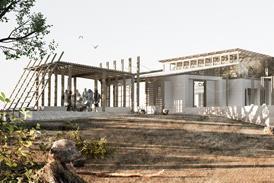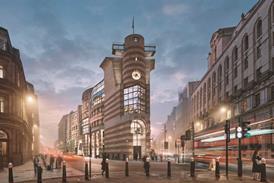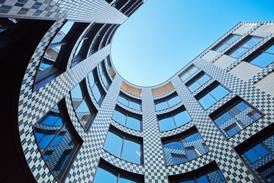- Home
- Intelligence for Architects
- Subscribe
- Jobs
- Events

2025 events calendar Explore now 
Keep up to date
Find out more
- Programmes
- CPD
- More from navigation items
‘A glimpse of new horizons’: Cooke Fawcett’s reworking of Cockpit’s craft incubator

A new craft garden and expanded public space enhances visibility and access for makers and the wider community, writes Mary Richardson
The redevelopment of craft-business incubator Cockpit’s Deptford site delivers an innovative craft-themed garden and welcoming new public space for the provider of low-cost workshops for makers.
The Cooke Fawcett scheme looks set to make a huge difference to the way the contemporary craft centre works. And it speaks to a new-found self-confidence and maturity in an organisation that has become the country’s leading provider of workspaces for craft makers.
…
This content is available to registered users | Already registered?Login here
You are not currently logged in.
To continue reading this story, sign up for free guest access
Existing Subscriber? LOGIN
REGISTER for free access on selected stories and sign up for email alerts. You get:
- Up to the minute architecture news from around the UK
- Breaking, daily and weekly e-newsletters
Subscribe to Building Design and you will benefit from:

- Unlimited news
- Reviews of the latest buildings from all corners of the world
- Technical studies
- Full access to all our online archives
- PLUS you will receive a digital copy of WA100 worth over £45
Subscribe now for unlimited access.






